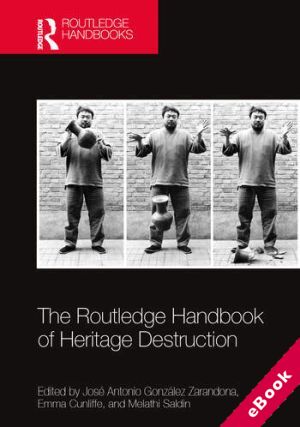
The device(s) you use to access the eBook content must be authorized with an Adobe ID before you download the product otherwise it will fail to register correctly.
For further information see https://www.wildy.com/ebook-formats
Once the order is confirmed an automated e-mail will be sent to you to allow you to download the eBook.
All eBooks are supplied firm sale and cannot be returned. If you believe there is a fault with your eBook then contact us on ebooks@wildy.com and we will help in resolving the issue. This does not affect your statutory rights.
The Routledge Handbook of Heritage Destruction presents a comprehensive view on the destruction of cultural heritage and offers insights into this multifaceted, interdisciplinary phenomenon; the methods scholars have used to study it; and the results these various methods have produced.
By juxtaposing theoretical and legal frameworks and conceptual contexts alongside a wide distribution of geographical and temporal case studies, this book throws light upon the risks, and the realizations, of art and heritage destruction. Exploring the variety of forces that drive the destruction of heritage, the volume also contains contributions that consider what forms heritage destruction takes and in which contexts and circumstances it manifests. Contributors, including local scholars, also consider how these drivers and contexts change, and what effect this has on heritage destruction and how we conceptualise it. Overall, the book establishes the importance of the need to study the destruction of art and cultural heritage within a wider framework that encompasses not only theory, but also legal, military, social, and ontological issues.
The Routledge Handbook of Heritage Destruction will contribute to the development of a more complete understanding and analysis of heritage destruction The Handbook will be useful to academics, students and professionals with an interest in heritage, conservation and preservation, history and art history, archaeology, anthropology, philosophy and law.